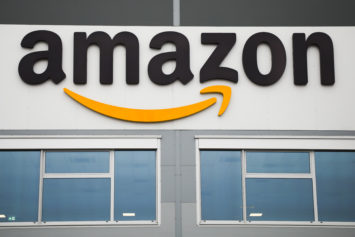
Fast food dominates the franchise industries represented in the Black community. (Wikimedia Commons)
For an entire generation of African-Americans, the notion of wealth management is a foreign concept. Despite the fact that most African-Americans are hard-working contributors to society, the sobering truth is that by 2020, white American households are projected to own 86 times the wealth of Black households.
“No, that wasn’t there. There was no wealth,” Mysia Hamilton, a working mother of five, told the Guardian about her parents’ ability to pass along money to her. “My mother was working, she was providing — we weren’t on the street begging — but there was no money in terms of ‘here you go’. No money to pass down.”
Hamilton manages to save $50 a month, which may be a notable exception. According to a study by Prosperity Now and the Institute for Policy Studies, African-Americans will have a median wealth of $0 by 2053. More urgently, more than one in four African-Americans already have a wealth of $0 or less, compared to one in 10 whites who have comparable wealth. Latinxs are expected to hit $0 median wealth by 2073.
“By 2020, median black and Latino households stand to lose nearly 18% and 12% of the wealth they held in 2013 respectively, while median white household wealth increases by 3%,” the study reads.
“The typical black family with a head of household working full time has less wealth than the typical white family whose head of household is unemployed. This outcome holds for black families regardless of the time and money spent on educational upgrading. Median wealth for black families whose head has a college degree, for example, has only one-eighth the wealth of the median white family whose head has a college degree. Even the typical black family with a graduate or professional degree had more than $200,000 less wealth than a comparable white family,” the study continues.
The disastrous Black recovery from the housing bubble and the Great Recession — which saw African-Americans recovering slower than whites, if at all — along with de facto discrimination in housing and lending policies and employment have led to a cratering of Black wealth. The continuation of such aggressively biased policies have made the idea of economic parity between whites and Blacks an impossibility.
“The role of policy in creating and maintaining the racial wealth gap makes it clear just how difficult it will be to close the gap through the individual choices and behaviors of African-Americans,” the study adds. “Educational attainment, the right occupation, and full-time employment are necessary, but not sufficient conditions for building wealth (and even equalizing these between races would be nothing short of miraculous).”
Such an extreme situation demands an unusual response. Recently one idea that has been circulated is expanding African-American involvement in franchising. The logic behind this is that by inserting an already-viable and established business into the Black community, one can skirt the problems inherent to a lack of familiarity or education regarding entrepreneurship — such as employee relations, supplier and contractor management, and legal compliance — and can focus on growing the business.
This, however, leads to complicated questions, such as is it wise to bring into the Black community businesses that will drain resources out of the community in franchising fees and profit sharing, does franchising actually help to build the entrepreneurship skills needed for success, and are the benefits of franchising worth the potential risks.
Understanding Franchising
Acknowledging that there is no one model of wealth accumulation, Rep. Bobby Rush (D, IL-1) and Howard Jones argued in an editorial penned for Black News that franchising may be essential to meeting the challenge of reversing wealth loss in the Black community.
Franchise businesses have a vital role to play in answering this challenge,” Rush and Jones wrote. “When combined with education, health, and anti-discrimination measures, these businesses can contribute to the ‘opportunity creation’ leg of the stool.”
“Franchising is unique because it pairs a well-known umbrella brand with an independent, locally owned establishment. Although often associated with the restaurant sector, there are franchise businesses in hundreds of fields, from healthcare, fitness, and home maintenance to travel, entertainment, and marketing. All are ripe for development by and for minority communities.”
The economic impact of franchising is undeniable. According to the International Franchising Association, the 732,842 business format franchises (as of 2016) in the United States produced 13.3 million jobs — with 7.6 million working in the franchises directly — $565.8 billion in direct and affiliated payroll, and $1.6 trillion in total output. It is highly unlikely that the average American can go about his/her day without coming across at least one franchise; the largest and most well-known companies in the United States are franchisors.
The Black Community and Fast Food
In the Black community, franchises have had a troubled past. Due to the economic realities of the Black neighborhood, including the wide proliferation of food deserts — areas that have no easy access to fresh foods — in low-income neighborhoods, food franchises have targeted Black neighborhoods at higher rates than white neighborhoods. This ready availability of fast food over healthy food has been credited as a leading cause of the obesity and poor health that affect the Black community.
Oddly enough, this phenomenon is credited for a push toward increasing minority participation in franchising. According to the book “Supersizing Urban America: How Inner Cities Got Fast Food with Government Help” by University of Sydney lecturer Chin Jou, the intention behind the fast food invasion was noble; President Lyndon Johnson, in 1965, ordered the Small Business Administration to help remedy the underlying roots of the Watts Riots. Assuming that low urban employment was a cause, the agency sought to promote minority entrepreneurship.
The SBA sought fast food franchises to meet this goal, which created a pattern of the federal government offering corporations grants that led to a growth of food franchises in urban neighborhoods. Overwhelmingly, African-Americans are more likely to participate in food franchises than any other franchising sector, per Jou. This is in part due to a virtual redlining of franchises funded by SBA grants, limiting them to Black neighborhoods.
This led to fast food chains intentionally targeting Black children. A study by the American Journal of Preventive Medicine looked at the marketing strategies of 6,716 fast-food restaurants. Despite the fact that 90 percent of the restaurants were situated in white neighborhoods, it was the ten percent in Black neighborhoods that displayed the majority of public-facing child-oriented ads featuring toys are cartoon characters.
“Previous research has shown that fast food companies target young people living in lower- income communities and communities of color using price promotion and advertisements, and that lower-income and minority children are more likely to be targeted by food advertising, particularly for foods of lower nutritional value including fast food,” the study’s authors said to the Atlantic.
While these businesses add jobs and wealth to the Black community, it is important to understand that this comes at a cost. While no evidence exists to suggest that food franchisee jobs pay less or are in any way inferior to non-franchisee jobs, these are still low- or no-skill jobs. In non-management positions, those employed in these positions are likely to make minimum wage or near-minimum wage, making the possibility of wealth building remote. Worse, the proliferation of these food franchises in Black neighborhoods versus white neighborhoods has essentially redefined Black dietary habits in America today.
“Dietary surveys do suggest that African-American diets in the pre-fast food era may have been healthier than in more recent years, and that their earlier diets were more nutritionally sound than those of white Americans with similar food budgets.” Jou said to PS Mag, noting that per a 1996 dietary analysis, “starting in the 1960s, traditional African-American staples like greens, black-eyed peas, and sweet potatoes increasingly gave way to typical fast food fare.”
“In 1965 — just a few years before the onslaught of fast food in inner cities — dietary surveys revealed that African-Americans were twice as likely as whites to meet dietary recommendations for fat, fiber, fruits, and vegetables. By 1996, the opposite was true.”
A Situation Matching the Need
If franchising is to be a valid solution, it must accommodate and meet the challenges that exist in the Black community without exacerbating them.
“I think the type of franchise matters,” Adia Harvey Wingfield, a professor of sociology at Washington University in St. Louis who studies minorities and women in the workplace, told Atlanta Black Star. “Some franchises may be more likely to be successful in marginalized communities than others. For instance, in my study of black women-owned beauty salons, I found that these entrepreneurs did not believe that their business suffered from the competition from larger chains. So, the type of franchise would matter in terms of its ability to create economic empowerment.”
A key consideration in the calculus of if a franchise can be a valid wealth-building tool in the Black community is the economic health of the Black community. Traditionally, franchise businesses tailored to the personal needs of those in the Black community — such as food preparation, grooming, tax preparation, and discount retail — tend to do better in low-income Black communities than higher mark-up businesses, like non-discount retail, movie theaters, and non-fast food restaurants. Due to the difficulties inherent in successfully establishing “non-traditional businesses” in the Black community, existing perceptions and discriminatory practices, and a perceived lack of entrepreneurial training and mentorship, it is difficult to escape existing patterns.
“If we are talking about disenfranchised communities, economic disadvantage will likely make franchising difficult, if not impossible. Current wealth inequities (which are particularly pronounced if we are talking about communities of color) will make securing the necessary capital to establish a franchise extremely challenging,” Wingfield added.
Deltrease Hart-Anderson is an accountant and owner of D. Hart Accounting Practitioner, LLC. Prior to her current business, Hart-Anderson was a franchisee with a tax preparation business. Hart-Anderson found that while there was a market in the Black community to support Black-owned businesses, the rigidity of a franchising system — when coupled with a lack of support — make it difficult for franchises to succeed. This is especially true in challenging markets.
Franchising typically works by establishing a model — usually based on what worked in pilot storefronts — to which franchisees must adhere. This does not allow for innovation, such as adjusting organically to the needs of one’s community. It also does not lend itself to entrepreneurial growth, as owners do not have a direct role in establishing hiring requirements, payroll levels, or suppliers’ relationships — all elements necessary for business success outside of the franchising system.
Worse, the franchising system is subject to costs not apparent at the setup of the franchise agreement. If sales do not meet the franchisor’s expectations, the franchisee may be subject to cost overruns, as labor costs cannot be easily adjusted. Hart-Anderson found that while she could afford the initial franchising fees, the long-term expenses required her to borrow extensively to stay afloat.
“When we did our feasibility meeting and met with the CEO, I was sold on the franchise,” Hart-Anderson said to Atlanta Black Star. “But once we actually opened our door, we found that the lack of support — despite there being a regional director — made it hard to stay afloat. Of the franchises that open in my area around 2008, only one is still open, and she has yet to reach profitability.”
Finally, there is the fact that with a franchisee, some of the net revenue is shared with the franchisor. Unlike a business that is owned by entrepreneurs that are a part of the community, a percentage of everything earned by the franchise ultimately leaves the Black community. This causes a draining of resources that would be unlikely with a locally owned organically developed business.
This paints franchising as a problematic solution for the Black community.
The Long Road Forward
Franchises nonetheless remain a well-considered option for Black wealth building today. It is easier, under current realities, to set up a franchise in the Black community than an original business. A lack of financial and entrepreneurial education and mentorship, discriminatory lending practices, and business expectations that discourage “non-traditional” businesses have all made it difficult to set up a unique business in the Black community.
The reality, however, is that the Black wealth problem will continue to worsen if nothing is done, and that makes this America’s problem. African-Americans and Latinxs are reproducing at a rate that far surpasses that of non-Hispanic whites, meaning that the percentage of America that will be Black in 2053 will be significantly greater than it is now. This presents grim socioeconomic implications of an even larger African-American population with zero median wealth.
This problem goes beyond personal responsibility. An African-American can do everything right — go to college, earn a graduate degree, get a good job, own a home, save regularly, and stay out of trouble — and still would likely have less wealth than his white counterpart. While franchising is not a magic cure that can alleviate this problem, it represents some of the “out-of-the-box” thinking that would be needed to reverse the policies and actions to undo the legacy of racism that caused this crisis.


